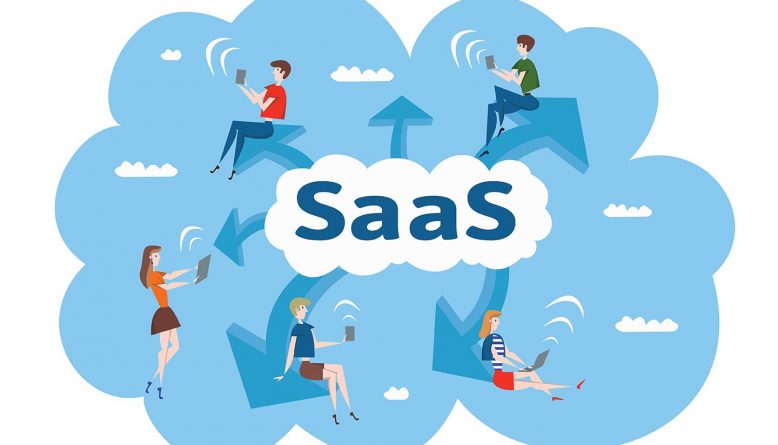WHAT IS E-COMMERCE INTEGRATION? AND WHY IS IT IMPORTANT?
SaaS application providers must connect to multiple e-commerce platforms to gain an edge in the digital landscape. The establishment of such connections is known as e-commerce integration, i.e., SaaS applications with a shopping cart or a marketplace. E-commerce integration also answers specifics in terms of the importance of managing operations that engage product data connection access, customers, orders, shipments, and cart. High revenue and expanding customer base are ensured through the shopping cart and marketplace integration for SaaS applications.
This article aims to describe what E-commerce integration is and how it helps influence the SaaS application business.
WHY SAAS APP PROVIDERS REQUIRE E-COMMERCE INTEGRATION?

The definition of e-commerce integration is not enough to make it work efficiently. You also need to understand why you require such an integrated solution for SaaS application providers. E-commerce integration services help you in the operational and maintenance of your business operations effectively. The entire integration solution provides you access to information on products, orders, shipments, invoices, and customers, from your e-commerce store without having to switch between systems. The accessibility to client stores is impossible without a proper e-commerce integration.
Additionally, suppose you have to spend all your time transferring data from one system to another. In that case, it is about time you look into e-commerce integration to help you manage your information across the e-stores. The whole integration process eliminates manual work and saves time for you to look into other important aspects of your business. It also maintains accurate and updated information on all products across multiple e-commerce platforms to save you from out-of-stock situations.
If you are looking to upgrade your system to focus on the core functionalities as per the clients’ requirements, e-commerce integration is the way for you to go. It will finally lead you to an increased market share and better market management options.
For specific services like shipping management, email automation, order and inventory, mobile app management, ERP, and other, e-commerce integration is a must-have for the clients who are the owners of an e-store.
BENEFITS OF E-COMMERCE INTEGRATION

The whole idea of e-commerce integration unravels several benefits of e-commerce integration with shopping and marketplaces and its SaaS application provider. Securing a strong connection with an e-commerce platform provides you leverage over the following:
• Integrating with shopping platforms like Shopify, Magento, WooCommerce, and Opencart will expand your customer base. The connection with such e-commerce platforms allows you to access thousands of retailers that base their store on these platforms.
• Integrating e-commerce with shopping platforms provides you with SaaS solutions that work with retailers to manage and revive all the information regarding orders, customers, products, baskets, shipments, taxers, and categories quickly.
• Connecting to multiple shopping platforms can help you to adopt and integrate new functionalities for your clients.
• Integrating e-commerce with multiple shopping platforms will increase your profit. More platforms mean more customers; more customers mean more sales for the business, which generates more profits.
DISADVANTAGES OF MANUAL PROCESSES
E-commerce integration comes with a significant number of difficulties if tried to maintain manually without the help of any third-party solution. Several issues need to be considered if you are thinking of developing a shopping cart integration on your own.
• Integrating your e-commerce website with each shopping cart platform costs thousands of dollars.
• It takes a month to complete each integration. As a SaaS app provider, it is recommended to have multiple integrations. However, waiting months to develop and test each integration individually will cost you thousands of potential clients. Not something an e-store can afford.
• It cannot be easy to cope up with the integrations when the shopping platform upgrades. There are risks of data loss and incorrect data retrieval. Additionally, a lot of time is spent on changing your codes.
• It cannot be easy to cope up with the integrations when the shopping platform upgrades. There are risks of data loss and incorrect data retrieval. Additionally, a lot of time is spent on changing your codes.
• There is a lot of trouble involved in APIs of a few shopping platforms. Lack of Etsy API documentation can lead to extended development time, and investigations and the API behavior can change without notification. It’s not a risk worth taking.
• E-commerce integration requires highly skilled developers with extensive technical knowledge. Developers with such robust knowledge are hard to find, as a strong integration is embedded with significant technological complexity.
• The manual development of integrations can also lead to severe security threats to your e-commerce website and system. If the connections are weak, the SaaS application may be prone to malicious users who would try to opt for data theft or damage your system.
WRAPPING UP!
E-commerce has become an essential aspect of any successful business. But setting up an online store is only half of the work. It is essential to establish automated connections between an e-commerce system and other digital business solutions, including warehouse management and ERP solutions. Without proper integration, most e-commerce websites have to be managed manually, which takes more time, reducing efficiency, and is often prone to errors. E-commerce integration improves efficiency and work speed, which increases the profit and the chances of increased potential customer generation securing the foundation for the e-commerce website.
